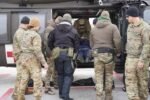Zoran Milanović almost won in the first round of Croatia’s presidential elections, receiving 49.2% of the vote. However, since a victory requires over 50%, a second round will be held. Milanović is confident that he will secure the win. This means that Croatia will continue to face the agony of a political conflict between the two leaders, the head of government and the head of state, a dispute that has persisted over the last four years.
If judged by the political discourse in Croatia, one might get the impression that it is an unserious state. However, Croatia is currently experiencing its most successful period in history. The country boasts record-low unemployment, the second-highest economic growth rate in the EU, a significant reduction in public debt, over 22 million foreign tourists annually, and record salary increases, bringing the country closer to the EU average.
President Zoran Milanović and Prime Minister Andrej Plenković are former colleagues from the Croatian Ministry of Foreign Affairs and, around the same time, began their diplomatic careers. Both are also alumni of the Faculty of Law at the University of Zagreb, and they know each other very well. However, in recent years, there has been significant animosity between them, which neither tries to conceal. They have insulted each other publicly on multiple occasions. The conflict between the president and the prime minister is so deep that they cannot even agree on the minimum required for the proper functioning of some state structures.
In Croatia’s parliamentary democracy, the president has very limited powers, much like in Kosovo. The main governance powers lie with the government, making Andrej Plenković undoubtedly the most powerful politician in Croatia. Yet, Milanović uses his limited presidential powers to their fullest extent, often blocking decisions. He has blocked the appointment of dozens of new Croatian ambassadors for years, making it impossible to replace those whose mandates have expired, causing them to continue in their posts for many years. The president has authority in foreign policy, defense, national security, and the appointment of Constitutional Court judges.
By nature, Plenković and Milanović have significant differences. Plenković is more pragmatic, cautious in his stances, and holds a very positive view of the European Union, NATO, and the international community. However, he leads the Croatian Democratic Union (HDZ), a highly conservative party. On the other hand, Milanović is a social democrat, nominally from the political left, but he behaves in a populist manner, making reckless, controversial, and often brutal statements. With his slogan, “Croats will not fight in the wars of others,” he refused to support sending two Croatian officers to a military base in Germany to train Ukrainian colleagues, calling it “an entry into the war in Ukraine.”
It is inaccurate and unjust to compare Croatian President Milanović to the elected U.S. President Donald Trump. Milanović has never worked outside politics, and despite his acrobatic political maneuvers, he supports more liberal values than Trump. Where he slightly resembles leaders from Hungary, like Viktor Orbán, and Slovakia’s Robert Fico, is in his critical stance toward the EU, which he calls the “Brussels bureaucracy.” Milanović, despite being left-wing, is more of a sovereigntist and advocates for not surrendering state powers to international organizations.
Milanović and Plenković have very different approaches to the war in Ukraine. While Plenković is fully committed to providing maximum support to Ukraine, Milanović wants Croatia’s involvement to be limited only to refugee care and humanitarian aid, but not military support. Milanović views the war in Ukraine as a “conflict of the great powers,” believing that “the small ones should stay under the table and not get involved.”
These differences between the two Croatian leaders will continue, as Milanović is almost certain to secure another five-year term as president, while Plenković and his HDZ party won the parliamentary elections less than a year ago and will remain in power for several years.
In the recent presidential election, Milanović almost won in the first round, receiving 49.2% of the vote. However, since a victory requires more than 50%, a second round will be held. Milanović is confident of his victory, meaning that Croatia will continue to face the agony of political conflict between the president and prime minister, just as it has for the last four years.
Judging by the political discourse, one might get the impression that Croatia is an unserious country. Yet, Croatia is going through its most successful period in history, with record-low unemployment, the second-highest economic growth in the EU, a significant reduction in public debt, over 22 million foreign tourists per year, and record salary increases, bringing it closer to the EU average.
On the other hand, Croatia faces significant demographic challenges. Since joining the EU, Croatia has lost more than half a million inhabitants. The aging of the population is progressing rapidly. Croatia now has just 3.8 million residents, down from 4.5 million when it began its EU accession journey. While over half a million Croats have moved to other EU countries for work, more than 200,000 foreigners have come to work in Croatia, many of them from Kosovo. The significant wage increases have been accompanied by inflation, and citizens are not feeling the fruits of success reflected in statistical data.
Milanović’s victory in the presidential elections and his new term will not change much in this regard, as the government holds the powers.
As for Kosovo, both Milanović and Plenković are strong supporters and advocates for Kosovo’s membership in the EU and NATO. Surprisingly, they share the same stance regarding the Croatian Armed Forces’ involvement in Kosovo within the NATO mission. Milanović once made a “slip-up” when he said, “Kosovo was stolen from Serbia,” but he said this more to oppose the government’s stance rather than to be against Kosovo. Croatia’s approach to Kosovo will remain unchanged after these elections.







